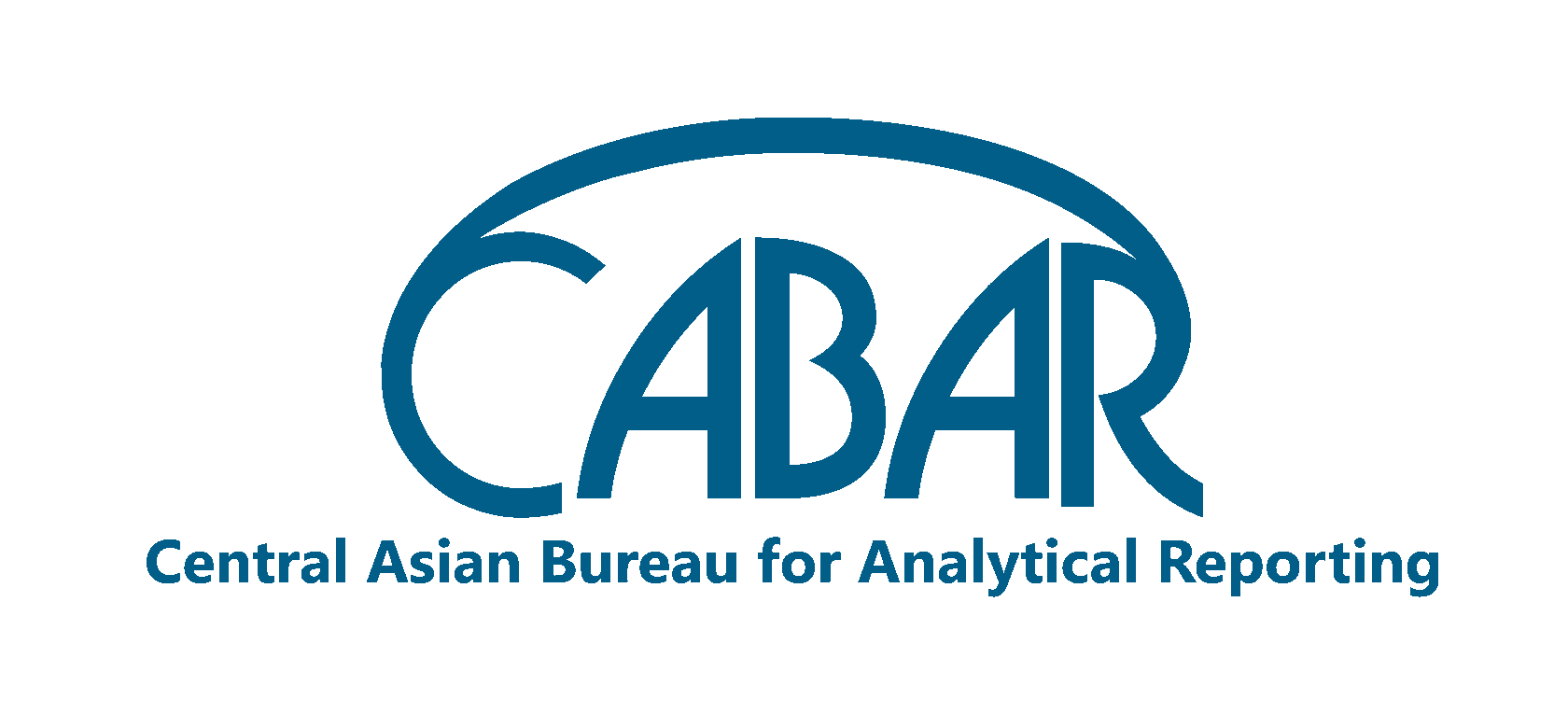Tajikistan: Why are ex-prisoners behind bars again?
CABAR.asia
Ex-prisoners are frustrated by the lack of permanent employment and the prejudicial attitudes of society. Experts believe that this situation could lead them to reoffend.
Zainal Zainiddinov, a 34-year-old resident of the Kubodien district in southern Tajikistan, was pardoned on September 21 of this year.
He looks forward to returning to his previous job. He worked as an electrician in a rural school before going to prison under two articles of the Tajik Criminal Code. He was sentenced to eight months in prison under Article 244, part two, "Manslaughter by negligence," and Article 237, part two, "Hooliganism."
"I was released under an amnesty. I came home on September 21 and I want to find a job. If they do not take me back to my old job, I will ll have to go to labor migration. It is hard to find a job, especially after getting out of prison. I was told that I will get an allowance, and after that I will try to find a job," he says.
Former prisoners pardoned in before 2019 say life has not been easy since their release.
"I was released under an amnesty. I came home on September 21 and I want to find a job. If they do not take me back to my old job, I will ll have to go to labor migration. It is hard to find a job, especially after getting out of prison. I was told that I will get an allowance, and after that I will try to find a job," he says.
Former prisoners pardoned in before 2019 say life has not been easy since their release.

Faizali Rasulov, a 22-year-old resident of Levakant, was pardoned and released from prison in Bokhtar in southern Tajikistan in 2019. His parents and sister greeted him with a bouquet of flowers.
He was sentenced to three years in prison for theft and was amnestied after serving one year under a law that went into effect in October 2019.
Faizali was unemployed for almost a year after his release. He has no higher education and because of his criminal record, he was not even hired as a security guard.
The family of an ex-convict living in the village of Nurafshon in the Vahdat district of Levakant city said their son barely managed to get 1,200 somoni (about $105) from the employment agencies.
The allowance for former prisoners at each stage is 400 somoni (about $34) per month. They are entitled to it for three months until they find work.
Horkash Rasulov, Faizali's father, is retired and suffers from hypertension. He told CABAR.asia that his son repeatedly applied to the employment service to find a job, but without success. The whole family now lives on his pension of 450 somoni (about $40).
Faizali was unemployed for almost a year after his release. He has no higher education and because of his criminal record, he was not even hired as a security guard.
The family of an ex-convict living in the village of Nurafshon in the Vahdat district of Levakant city said their son barely managed to get 1,200 somoni (about $105) from the employment agencies.
The allowance for former prisoners at each stage is 400 somoni (about $34) per month. They are entitled to it for three months until they find work.
Horkash Rasulov, Faizali's father, is retired and suffers from hypertension. He told CABAR.asia that his son repeatedly applied to the employment service to find a job, but without success. The whole family now lives on his pension of 450 somoni (about $40).
Ex-prisoners say that after release they are promised courses where they can learn a new profession and then find a job. In fact they face many problems after release.
Shokhsanam Karabayeva, a social worker at the Human Rights and Rule of Law Bureau in Bokhtar, said 20 ex-prisoners contacted their office in 2019, 61 in 2020, and more than 50 in 2021. Everyone's problems are different.
"Most of the people who applied don't have a job. When they apply to any agencies looking for a job, they are required to have a certificate of no or criminal record. And when they find out that they have a criminal record, they refuse to hire them," says Shokhsanam Karabaeva.
Nargis Zokirova, chairperson of the "Bureau for Human Rights and Rule of Law" in Dushanbe, said they have offices in four regions of Tajikistan and former prisoners turn to them.
"In 2020, 661 former prisoners, including 510 men and 151 women, applied to the 'Bureau for Human Rights and the Observance of Law' in Dushanbe," Nargis Zokirova said.
Shokhsanam Karabayeva, a social worker at the Human Rights and Rule of Law Bureau in Bokhtar, said 20 ex-prisoners contacted their office in 2019, 61 in 2020, and more than 50 in 2021. Everyone's problems are different.
"Most of the people who applied don't have a job. When they apply to any agencies looking for a job, they are required to have a certificate of no or criminal record. And when they find out that they have a criminal record, they refuse to hire them," says Shokhsanam Karabaeva.
Nargis Zokirova, chairperson of the "Bureau for Human Rights and Rule of Law" in Dushanbe, said they have offices in four regions of Tajikistan and former prisoners turn to them.
"In 2020, 661 former prisoners, including 510 men and 151 women, applied to the 'Bureau for Human Rights and the Observance of Law' in Dushanbe," Nargis Zokirova said.
"We want to mobilize and put them all to work, but many companies don't hire them," says Oidinoi Avazova.
Oidinoi Avazova, an employee of the Kubodeni district employment department, which is supposed to provide jobs for the unemployed, said that five people in their district were employed in agricultural institutions and public utilities. However in most cases, business leaders don't want to hire them.
She said it would be especially difficult to find jobs for women who have been convicted on charges of theft, fraud, robbery and murder.
She said it would be especially difficult to find jobs for women who have been convicted on charges of theft, fraud, robbery and murder.

Amnesty, Photo: CABAR.asia
Kabodyon is a district in southern Tajikistan on the border with Afghanistan with a population of 185,000. Last November, 37 ex-prisoners were registered here.
According to Tajik expert Suhrob Safaryon, former prisoners, even after their release from correctional institutions, remain "uncorrected" for the rest of the people. This stigma remains with them for many years, even after their release from prison.
According to Tajik expert Suhrob Safaryon, former prisoners, even after their release from correctional institutions, remain "uncorrected" for the rest of the people. This stigma remains with them for many years, even after their release from prison.
"Those who have committed murder, however, will remain outcasts not only in society, but also in their families. In the last few years we haven't seen anyone released after serving a sentence for murder and still being accepted, especially by employers. They don't hire them because they are afraid of them."
According to Tajik law, with some exceptions, employers do not have the right to demand from an employee a document confirming the presence or absence of a criminal record. But, according to experts, as soon as this becomes known, such people lose their employment opportunities.
Oinihol Bobonazarova, a Tajik human rights activist, said that our society treats ex-prisoners poorly, in particular not wanting to take them to work and not seeking to help them.
"Ex-prisoners are looked at differently, after they leave prison it is difficult for them to find a job. Life on the outside becomes difficult, although they would be happy to change their lives after release," Bobonazarova said.
She said former prisoners try to change their names and go into labor migration, but not many succeed.
"When 20,000 people are released, the authorities should prepare a special program in advance to provide them with jobs so that the ex-prisoners can help their families and not become an additional headache for them. When there are no jobs, they can commit a crime again. We read in the media that former prisoners committed crimes again after being released," Bobonazarova said.
"Ex-prisoners are looked at differently, after they leave prison it is difficult for them to find a job. Life on the outside becomes difficult, although they would be happy to change their lives after release," Bobonazarova said.
She said former prisoners try to change their names and go into labor migration, but not many succeed.
"When 20,000 people are released, the authorities should prepare a special program in advance to provide them with jobs so that the ex-prisoners can help their families and not become an additional headache for them. When there are no jobs, they can commit a crime again. We read in the media that former prisoners committed crimes again after being released," Bobonazarova said.
The problems of mistrust and difficulty in finding work for former prisoners still exist, and while they remain unresolved, they become relevant to the 16,000 thousand prisoners who have fallen under amnesty. Over 10,700 of them will already be released soon.
This material was prepared within the framework of the IWPR project "Amplify, Verify, Engage: Information for Democratisation and Good Governance in Eurasia", funded by the Norwegian Foreign Ministry, and the mentoring program of the "Development of New Media and Digital Journalism in Central Asia" project, implemented by the Institute for War Reporting and Peace (IWPR) with the support of the UK Government. The content of this publication does not reflect the official views of IWPR, the Norwegian Foreign Office, or the UK Government.
